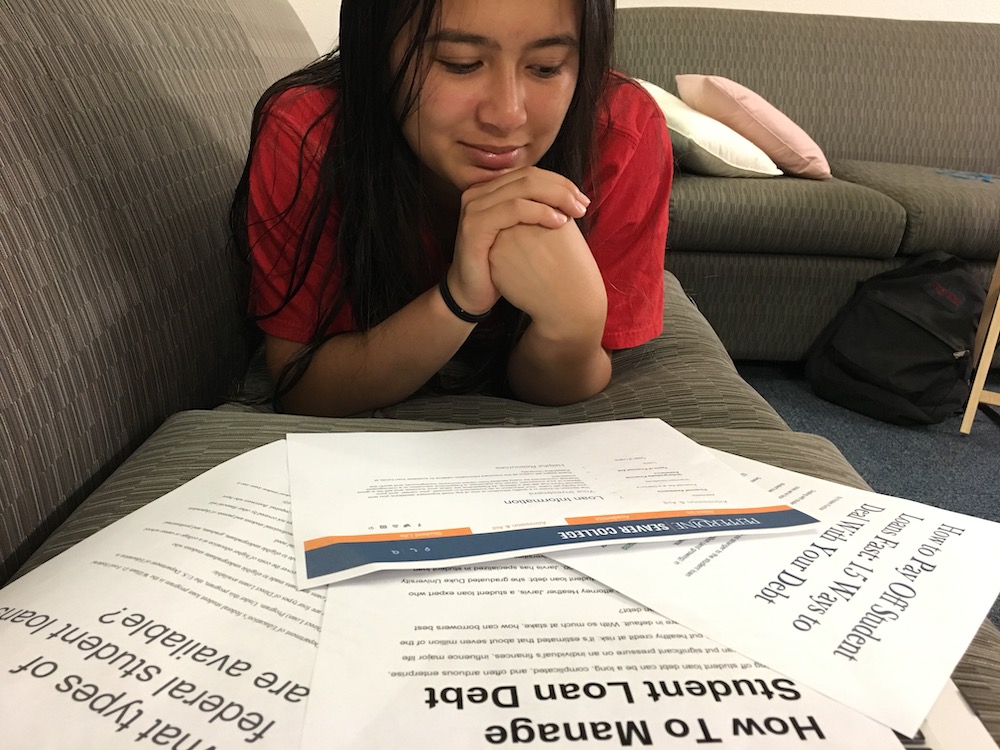
Riding camels in Jordan and drinking tea at Kensington Palace are once-in-a-lifetime experiences that Pepperdine University student Connor White took part in during his year abroad.
When students like White study abroad through one of Pepperdine’s seven International Programs (IPs), they come back with countless pictures to show and stories to tell about their travels.
The emphasis Pepperdine places on these IPs has turned it into one of the leading U.S. colleges in undergraduate study abroad participation. While uncommon at many schools, spending sophomore year abroad has become an expectation at Pepperdine. IPs allow White and other students to immerse themselves in new cultures and to grow as individuals, though it can significantly impact relationships, classes and finances.
White, now a junior, spent last year in London. Now he is working as this year’s London Ambassador in the IP office and can see just how beneficial the year-long program was for him.
“Going for the year allows more time to grow with the students you’re there with, while also letting you gain a better knowledge of your location. It’s more time to explore, learn and make memories that you wouldn’t trade for anything,” he said.
He found the friendships he formed with the students in his program to be some of the most rewarding parts of his year abroad. The experiences they shared in London are now memories that only they can look back on and share with each other.
“I can’t imagine my time at Pepperdine without some of the friendships I cultivated in London,” White said. “Having these experiences binds you like nothing else can.”
Promotion for IPs geared toward the freshman class begins with the New Student Orientation in August and does not let up until the application deadline in October, which could help explain their popularity. White remembers all of the attention given to IPs well.
“They come at you with it so fast, and then it never fully stops. There is something going on all the time, and it is such a constant presence,” White said.
International Programs Director Greg Muger shows great pride in the study abroad programs Pepperdine offers. He said he has seen them positively impact the lives of students both during their time at Pepperdine and after graduation.
“We are ranked nationally as one of the top 10 schools that sends the greatest percentage of undergraduate students abroad,” Muger said. “We are proud of this fact. The study abroad experience affords students a leg up over students that don’t (study abroad) — greater self-confidence, international exposure, a greater understanding of self, as well as being a highlight on a resume for prospective employers.”
Pepperdine took the sixth spot in the Institute of International Education’s ranking of schools’ undergraduate study abroad participation for the 2012-2013 school year. Some 543 undergrads studied abroad, with 920 degrees conferred that year. Pepperdine was topped by the University of Denver, University of San Diego and New York University, but was placed higher than Stanford, Dartmouth and Duke.
The level of popularity of Pepperdine’s IPs is unheard of at most schools. In her article “Who Studies Abroad, Who Stays Put and Why” for The New York Times, Joyce Lau reports that just 14 percent of U.S. undergraduates study abroad at some point in college, a number far lower than Pepperdine’s participation rate.
Pepperdine’s IP website reports that more than 60 percent of Pepperdine graduates will take part in one or more IPs during their time as an undergraduate student.
Even more unusual is the fact that Pepperdine’s IP students normally do not head off for just a semester, but instead dedicate their entire sophomore year to going abroad. Muger said these year-long IPs have much more to offer students than shorter programs.
“Research shows that studying abroad for the entire year versus a single semester greatly increases the value of the abroad experience,” he said. “The greatest advantage is deepening cultural exposure: more practice with the local language, developing deeper friendships (and the) opportunity to travel more.”
Freshman Austin Norton, who will be studying in Shanghai, China, next year, said he is worried about maintaining the friendships he has formed with people outside of his program.
“It’s going to be so hard, just like in high school where everyone is like, ‘Oh we’ll keep in touch,’ but everyone is so busy,” Norton said. “Especially when you’re traveling the world on the weekends and you’re studying during the week, you don’t have time to Skype for six hours.
“Junior year I’m going to come back and be like, ‘Oh remember me? We had freshman math together,’ and people are like, ‘Oh, I guess I kind of forgot about you.’”
For many students, the thought of going abroad for a year is daunting. Norton hopes that, as an out-of-state student from Wisconsin, this year has prepared him to leave for Shanghai in the fall.
“I think that it’s a lot of time when you’re so young to be gone on your own when you don’t have your parents or anyone else,” he said. “But I’m already so far away from home that it’s basically like I’ve been studying abroad this year because I’m 2,000 miles away and don’t have any family here. I think it’s a good life-changing experience, but it’s also a lot of change all at once for a long time.”
Another important factor students must consider is the cost of studying abroad. Pepperdine’s $44,650 tuition remains the same abroad, but that figure does not account for the thousands of dollars students spend on traveling, food and sightseeing. Junior Lauren Seefeldt, who spent last year in Heidelberg, Germany, estimates that she spent about $3,000 over the course of the year.
“If you’re not careful, abroad can become very expensive very fast, and students often have to be very thrifty with their money,” Seefeldt said.
Senior Kylie Thomas, on the other hand, chose to spend her second year in Malibu. IPs offer mostly general education classes, so by staying she was able to get ahead on courses required for her psychology major and is graduating early. This lack of major-specific classes, combined with the financial burden IPs would have put on Thomas’ family, were the main factors in her decision to not go abroad.
“It’s frustrating because it’s expensive, and I don’t think they’re very upfront about the cost difference,” Thomas said. “For me, going abroad meant asking my parents to take out another loan, and those were the exact words of the financial aid office. My family and I were not really able to do that, and so that was tough to muddle through.”
“I also have friends whose outside scholarships wouldn’t support them if they went abroad,” Thomas continued. “They put so much hype on IPs that it leaves students who choose not to go or who can’t afford to feeling abnormal or like they’re missing out, when in reality we go to school in Malibu; no one is really missing out.”
Tierney Anderson completed this story in Wendy Fontaine’s spring 2015 Jour 241 class.



